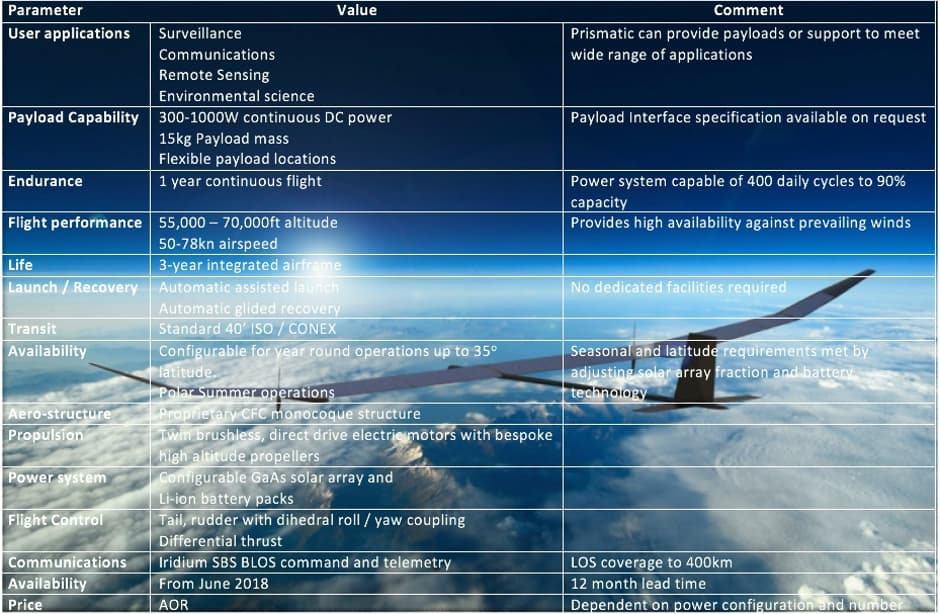UK engineers enter PHASA-35 of High Altitude, Long Endurance UAV development
UK engineers have signed an agreement to further develop PHASA-35, a solar powered UAV that can stay airborne for a year to deliver services that include surveillance and communications.
Engineers from Prismatic and BAE Systems will collaborate on the development of PHASA-35, a High Altitude, Long Endurance (HALE) UAV, which can also be used for remote sensing or environmental science tasks at altitudes of between 55,000 and 70,000ft. Work is already underway to prepare the first aircraft for flight tests in 2019.
According to BAE Systems, Solar HALE vehicles offer a significantly cheaper alternative to conventional satellite technology, with PHASA-35 (Persistent High Altitude Solar Aircraft), being a concept solar electric UAV that uses Li-ion battery technology and ultra-lightweight GaAs (Gallium Arsenide) solar cells to potentially maintain flight for up to 12 months.
The PHASA-35 concept has a 35m wingspan and weighs 150kg. A quarter scale model (PHASE-8) completed a maiden flight in 2017, with Prismatic and BAE Systems now looking to take the technology a step further.

Michael Christie, Strategy Director within BAE Systems’ Air sector, said: “Prismatic is a fast paced and forward thinking company and PHASA-35 is a great example of what the team can achieve in a short space of time.
Register now to continue reading
Thanks for visiting The Engineer. You’ve now reached your monthly limit of news stories. Register for free to unlock unlimited access to all of our news coverage, as well as premium content including opinion, in-depth features and special reports.
Benefits of registering
-
In-depth insights and coverage of key emerging trends
-
Unrestricted access to special reports throughout the year
-
Daily technology news delivered straight to your inbox










Water Sector Talent Exodus Could Cripple The Sector
Maybe if things are essential for the running of a country and we want to pay a fair price we should be running these utilities on a not for profit...